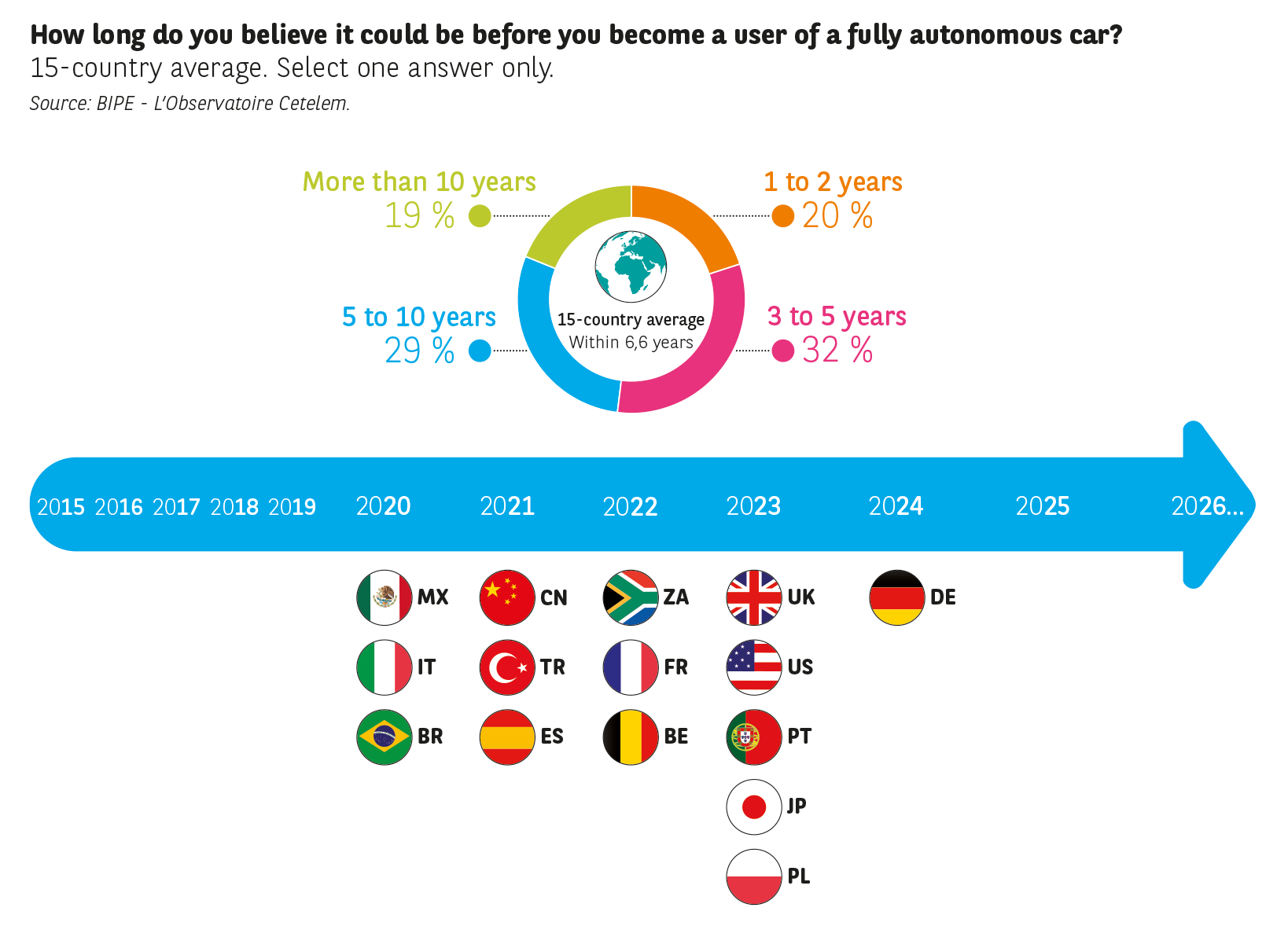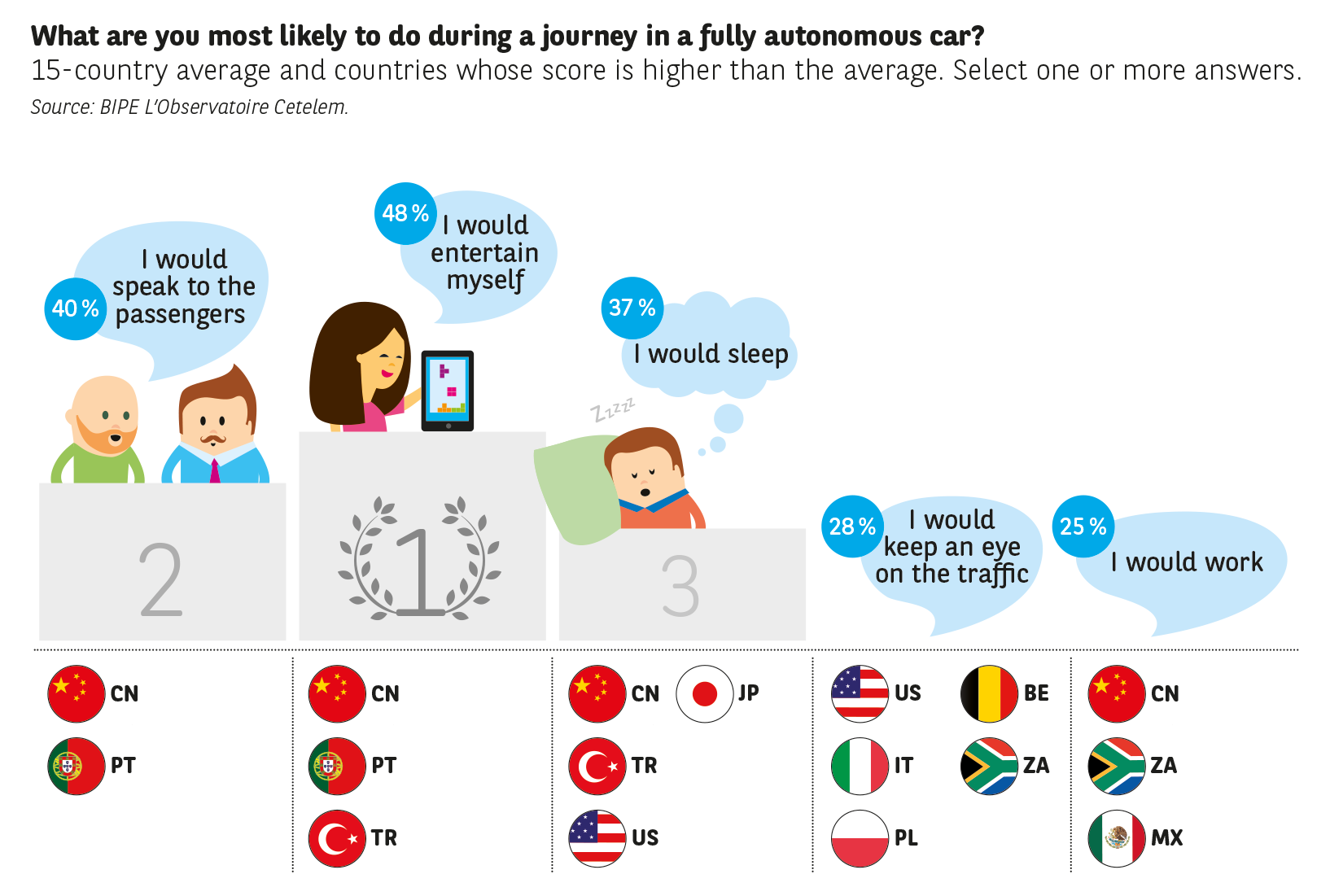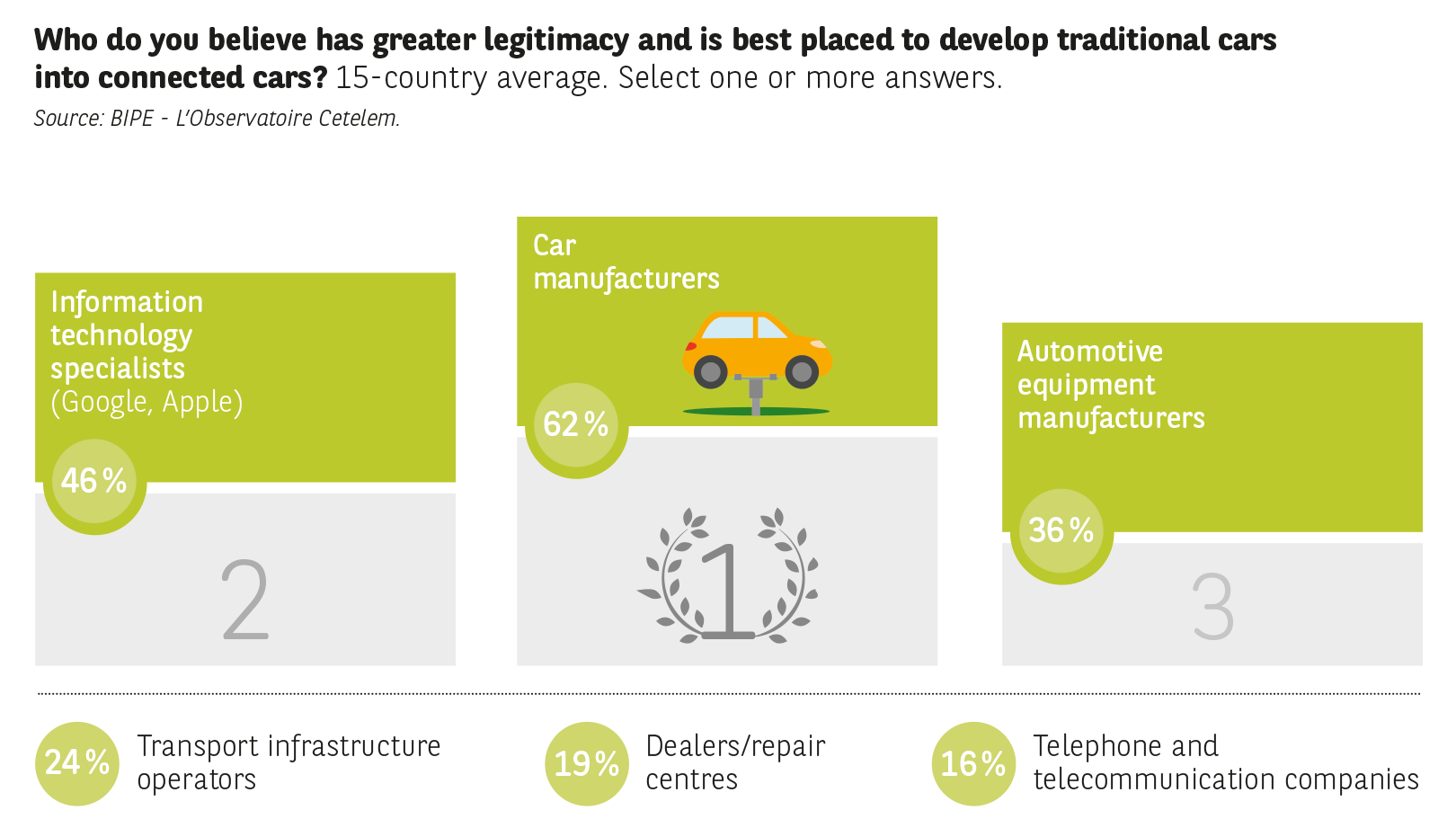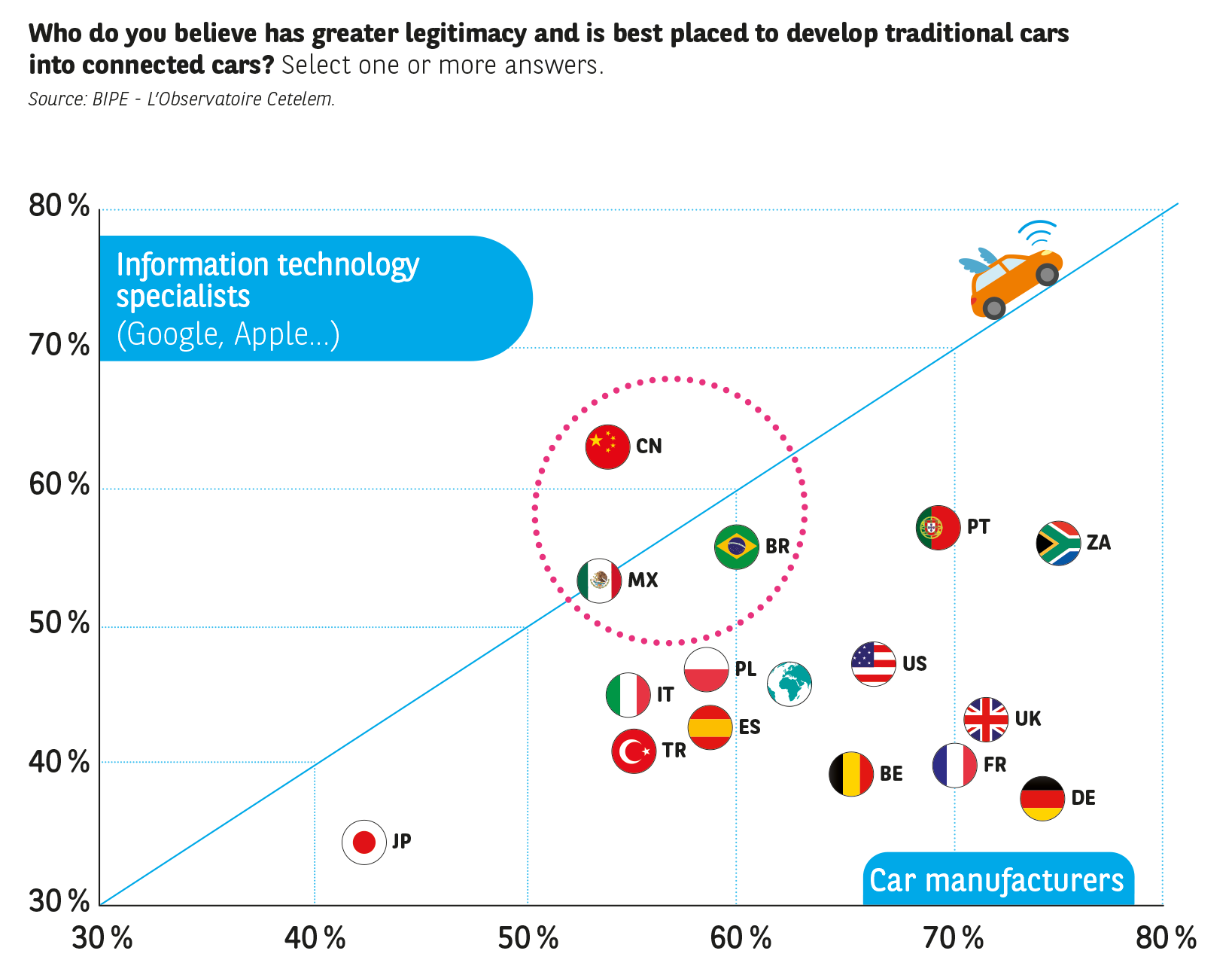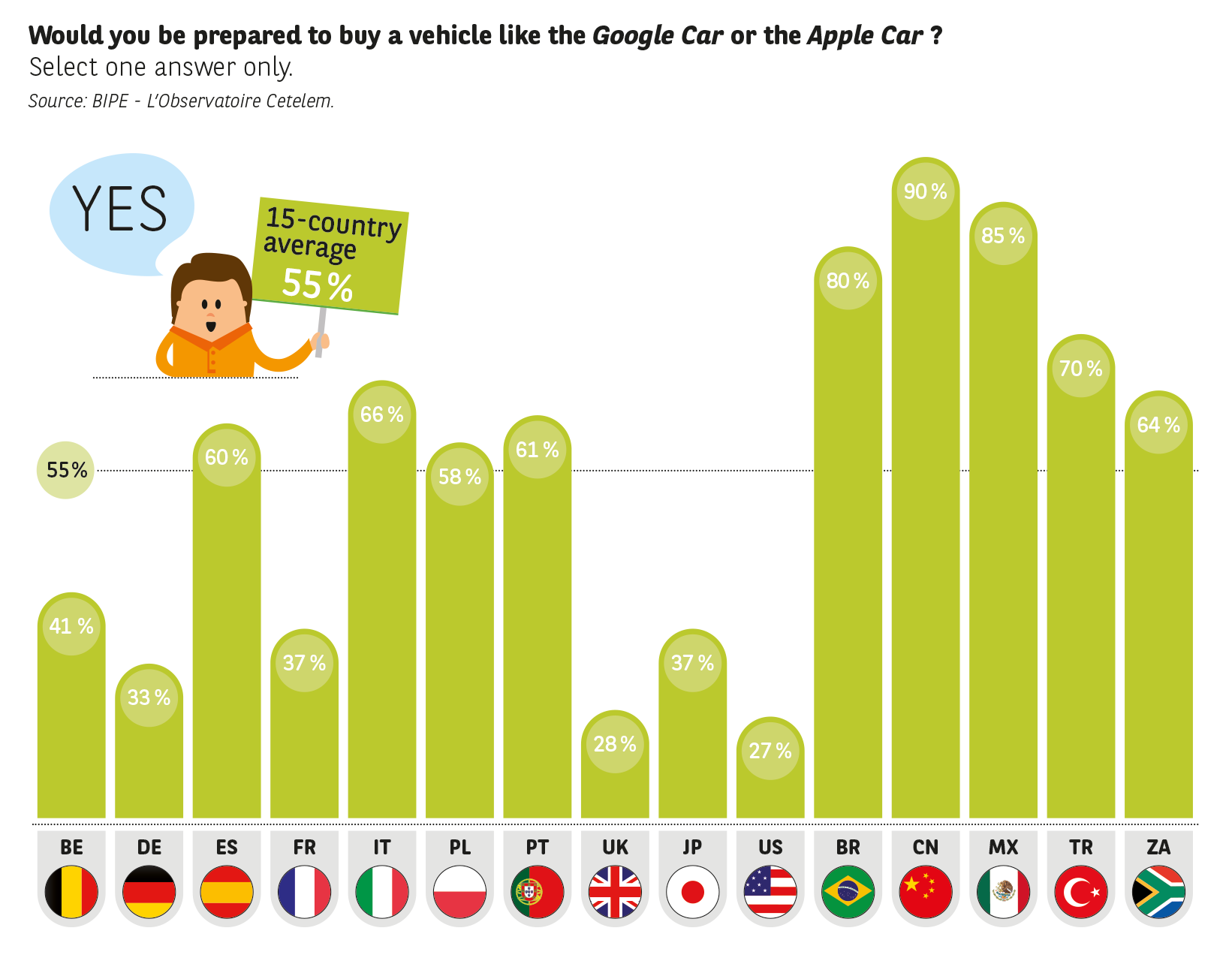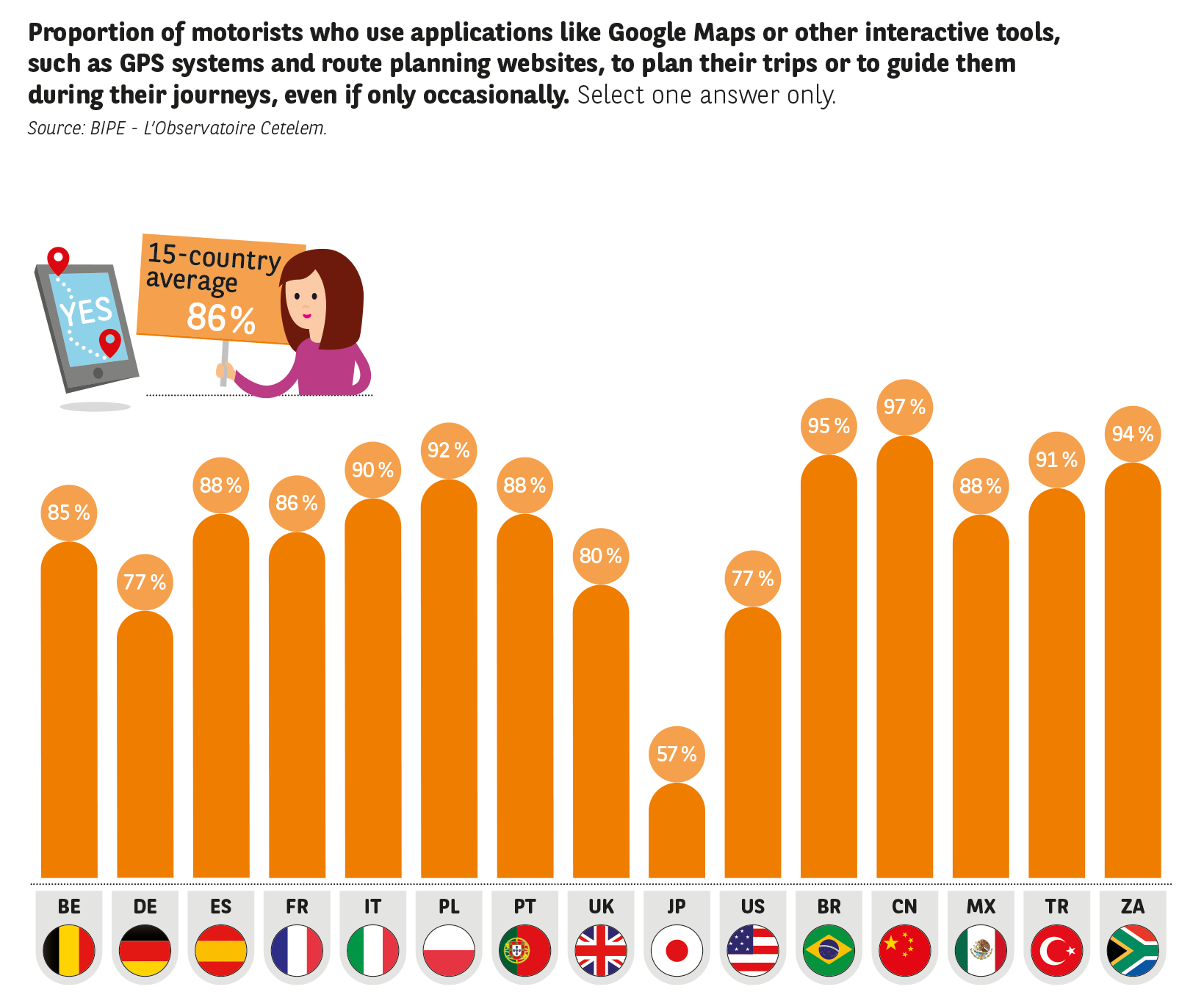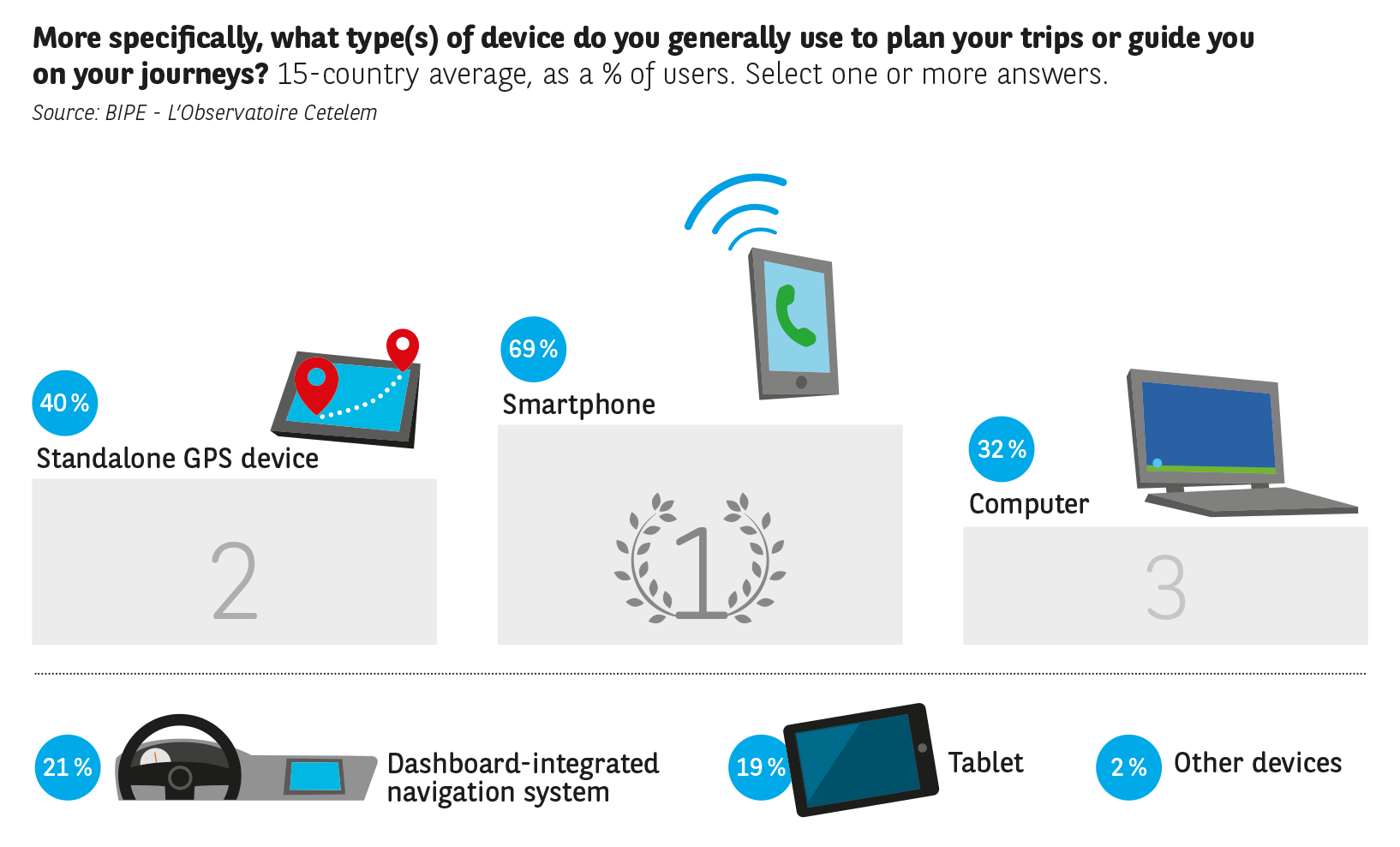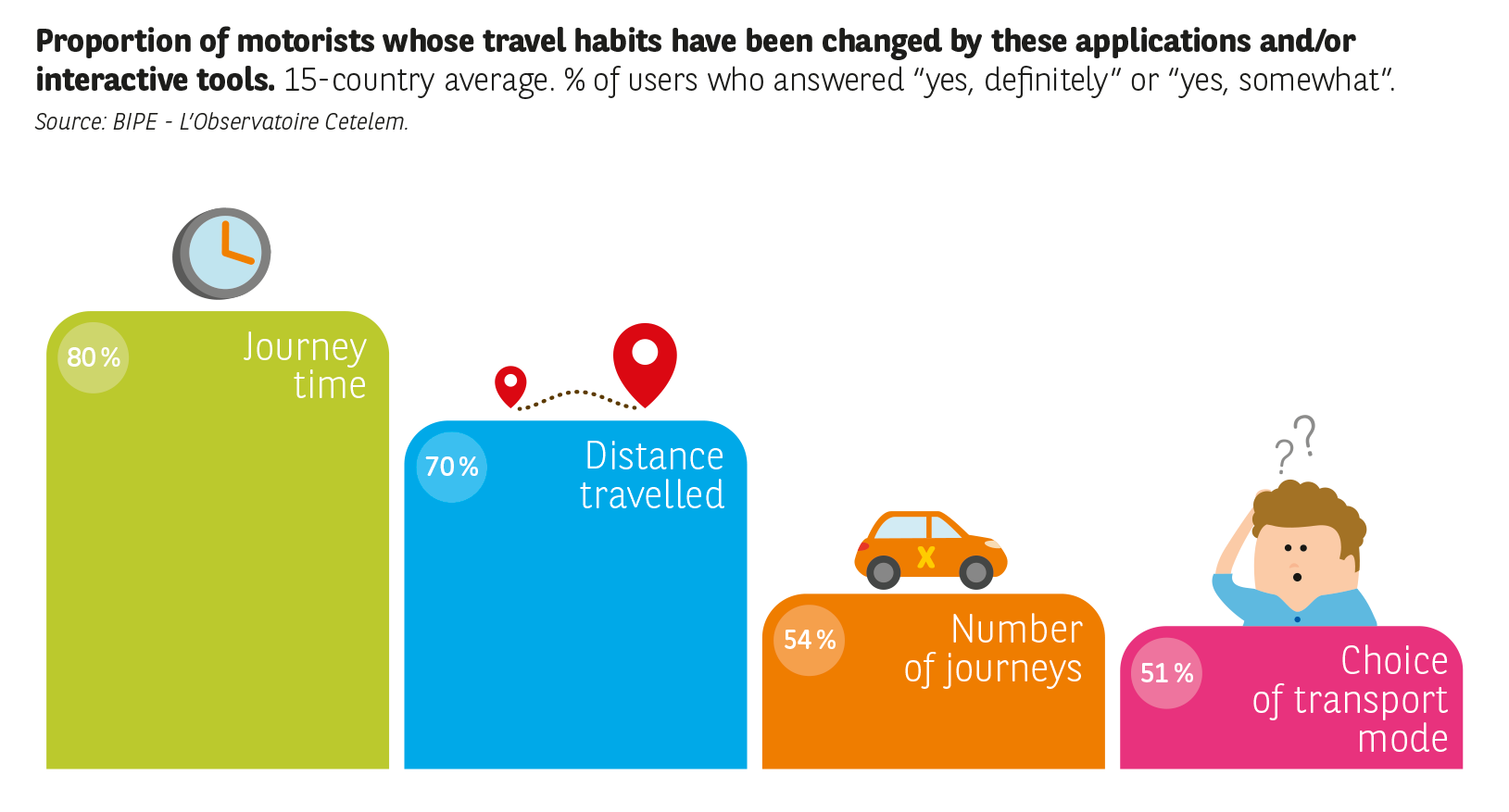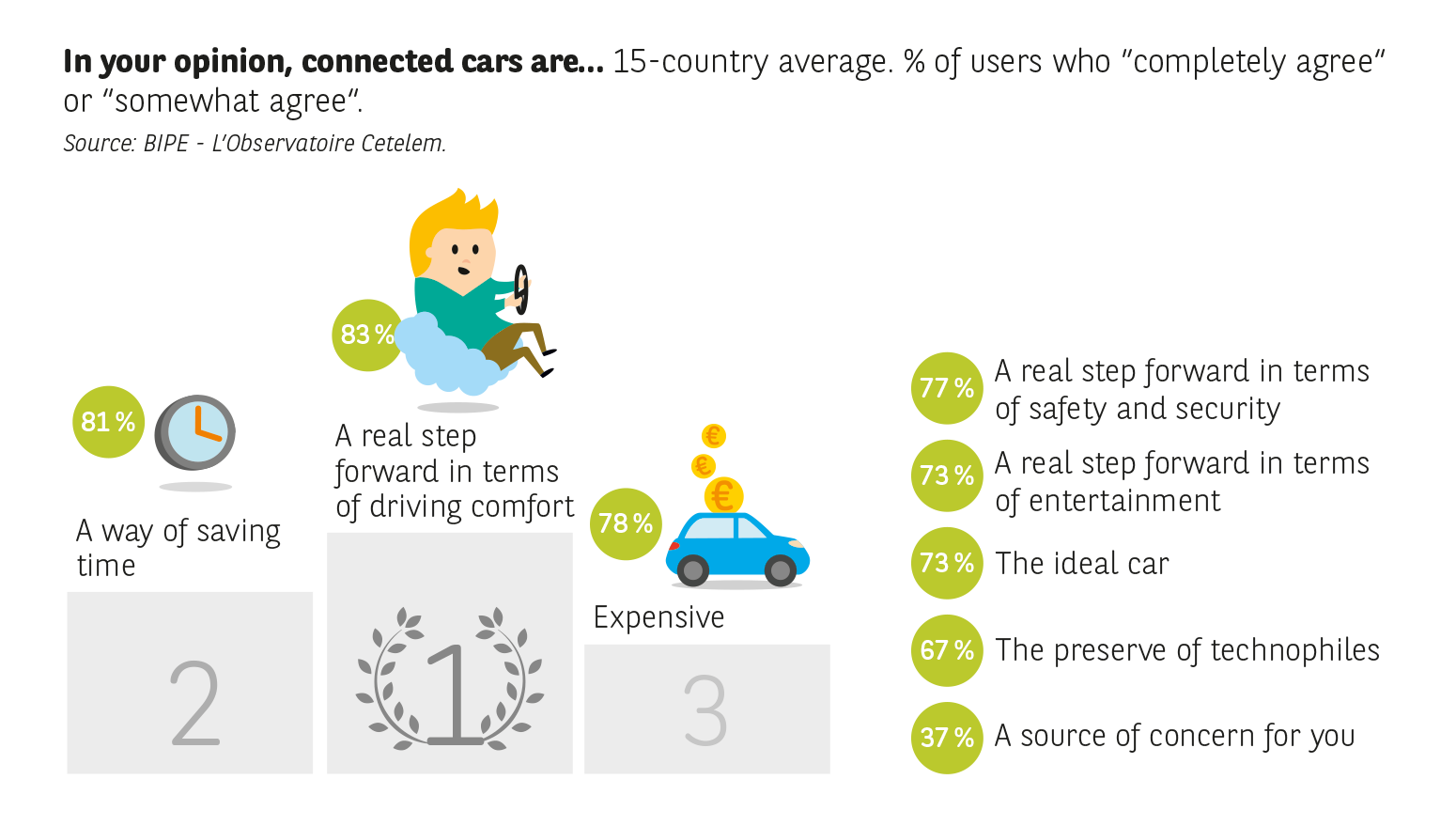A PIVOTAL GENERATION


Nowadays, children are leaving home later and later, with many people essentially cohabiting with their parents. In the opinion of seniors, intergenerational bonds are both unbreakable and meaningful.
Homes are often shared
Some 80 % of the seniors surveyed for L’Observatoire Cetelem are parents. 43 % of those aged between 50 and 60 still have a child living under their roof. In the age group above, 17 % of 60 to 75 year olds share their home with one of their children.
5 % of seniors also live with one of their parents or parents-in-law. This is relatively unusual in Europe, as the latter tend to have their own separate accommodation. 40 % of seniors therefore have at least one parent with their own home (Fig. 10).
Fig. 10 Seniors and family
Source: L’Observatoire Cetelem de la Consommation 2016.
Intergenerational cohabitation, a cultural phenomenon
Intergenerational cohabitation is not new in Europe. However, for the last few years, the age at which children leave home has been rising. According to a Eurostat survey published in 2015 (Fig. 11), young Europeans now leave at an average age of 26. Indeed, lengthening periods of education, the struggle to find employment and the fact that individuals are starting relationships later all serve to delay the age at which young adults begin to stand on their own two feet.
The crisis has done little to overhaul cultural differences in Europe. In fact, quite the contrary. Intergenerational cohabitation between parents and children, and even between grandparents, parents and children, is now more common in Mediterranean countries such as Italy, Spain and Portugal. In Spain, where children leave the family home at an average age of 29, 57 % of seniors state that they still have a child living at home, almost double the European average! They are also twice as likely than average to have parents or parents-in-law living under their roof. The figures for Portugal are similar. The same is true in Eastern European countries such as Romania, Slovakia, Hungary and Poland, where children live in their parents’ home for longer.
Further north, the Scandinavian model, which is built upon a highly protective welfare state, frees seniors from excessive constraints when it comes to supporting their (grown-up) children and elders. Indeed, Denmark is the country where living with adult children is least common, with offspring leaving home at an average age of 21.
In Germany and the United Kingdom, intergenerational solidarity is clearly less engrained in people’s mindsets, despite the fact that employees can now receive considerable support from their employers (family care leave, reduction in working hours) to look after loved ones who are sick or nearing the end of their lives. It should be noted, however, that 13 % of over 65s in OECD countries live beneath the poverty line (Fig. 12).
Fig. 11 Do you have children, grandchildren, great grandchildren, parents or parents-in-law living in your home?
Source: Eurostat, L’Observatoire Cetelem de la Consommation 2016; scope: 50-75 year olds.
Fig. 12 Poverty among individuals aged 65 and over (proportion of the population aged 65 and over who live with less than half the median wage)
Source: OECD, Pensions at a Glance 2013.
Crucial financial support for children
After the children have left home, family solidarity lives on. Almost 80 % of Europe’s seniors occasionally or regularly contribute to the expenses or savings of their children or grandchildren (Fig. 13).
If we look at the breakdown, 63 % help their children with day-to-day expenses once they have left home (food shopping, education, pocket money, etc.). 56 % give them a financial “helping hand” when it comes to purchasing the equipment they need. These two figures highlight the decisive contribution seniors make to the spending of younger generations!
In addition, more than a third of them help their children or grandchildren cover their accommodation costs, as these tend to be the biggest drain on their budget. They also contribute significantly to their children’s savings (52 %).
Fig. 13 Would you say that you contribute, either occasionally or regularly, to financing the following expense items of at least one of your children, grandchildren or great grandchildren who do not live in your home:
Source: L’Observatoire Cetelem de la Consommation 2016
Financial support is also provided to parents
Almost two in five seniors with at least one living parent offer them financial support, either occasionally or regularly (Fig. 14). As with their children, this support relates primarily to day-to-day living expenses and purchases of new equipment. To a lesser extent, it also contributes to accommodation expenses and savings. It tends to increase as parents near the end of their lives, chiefly to cover medical, home adaptation and palliative care costs.
Indeed, while social security systems in most parts of Europe are seeking to restructure in order to cover part of the costs relating to elderly dependence, in the majority of cases the needs of aged dependants are met by family members. Not only does this represent a considerable outlay for providers of support, a third of them also give more than 20 hours of their time per week, according to the OECD. Fifty-somethings are on the front line of this generational solidarity, with more than half stating that they have at least one parent, parent-in-law or grandparent nearing the end of their life.
Fig. 14 Would you say that you contribute, either occasionally or regularly, to financing the following expense items of at least one of your parents, parents-in-law or grandparents who do not live in your home:
Source: L’Observatoire Cetelem de la Consommation 2016
A contribution that varies from country to country
Financial ties between seniors and their children, on the one hand, and their parents, on the other, are much stronger in Southern and Eastern Europe. Contributions to the accommodation expenses of children who have left home are more common in Spain, Portugal and Poland, countries in which the path to employment is strewn with obstacles. The unemployment rate of individuals aged under 25 is particularly high in Spain, where it reached 49 % in 2015, and in Portugal, where it stood at 32 % (compared with an average of 20 % in Europe, source: Eurostat).
Contributions to the day-to-day expenses of elderly parents are more common in Romania, Hungary and the Czech Republic. This kind of financial support for our elders is less common in Germany, France and the United Kingdom, where the living standards of the older generations make it much less of a necessity.
Giving a helping hand, a moral issue
Providing financial support to the generations above them (Fig. 15) and below them (Fig. 16) is important to the vast majority of seniors. All feel that it is a moral duty, whether they offer occasional or regular financial help to their loved ones.
In France, where intergenerational financial support is less prevalent than elsewhere, seniors nevertheless state that they are very attentive to the needs of their parents and children. Not providing financial help does not mean neglecting! While instilling responsibility is the dominant approach in Western and Northern Europe, seniors retain a benevolent attitude towards their loved ones (Fig. 17).
The professional and personal circumstances of children and grandchildren is a preoccupation for almost two-thirds of European seniors (64 %) (Fig. 18). Once again, the degree of concern displayed varies according to each country’s economic situation. Thus, the Spanish, Portuguese, Italians and French declare that they are “very concerned”, while the Germans and British are less worried about their descendants.
Fig. 15 How important do you believe it is to provide financial support to your parents, parents-in-law or grandparents?
Source: L’Observatoire Cetelem de la Consommation 2016
Fig. 16 How important do you believe it is to provide financial support to your children, grandchildren or great grandchildren?
Source: L’Observatoire Cetelem de la Consommation 2016
Fig. 17 Are you concerned about your children’s future professional and personal circumstances?
Source: L’Observatoire Cetelem de la Consommation 2016
Fig. 18 Are you concerned about the well-being and personal circumstances of your parents, parents-in-law or grandparents?
L’Observatoire Cetelem de la Consommation 2016
Sharing with those we love
The intergenerational relationships forged ultimately mean that seniors play a major social role. Initially exercised alongside their profession, this key role makes it easier to embrace retirement. Being able to contribute enriches the lives of seniors who are still active and very keen to be involved. Two-thirds of them declare that being surrounded by their loved ones is essential to growing old happily. They devote time to them, with more than half seeing their family more than once a week. Two countries stand apart: Italy, where it is rare that a week goes by without seniors spending time with their family. Germany, where seniors see less of their loved ones.

